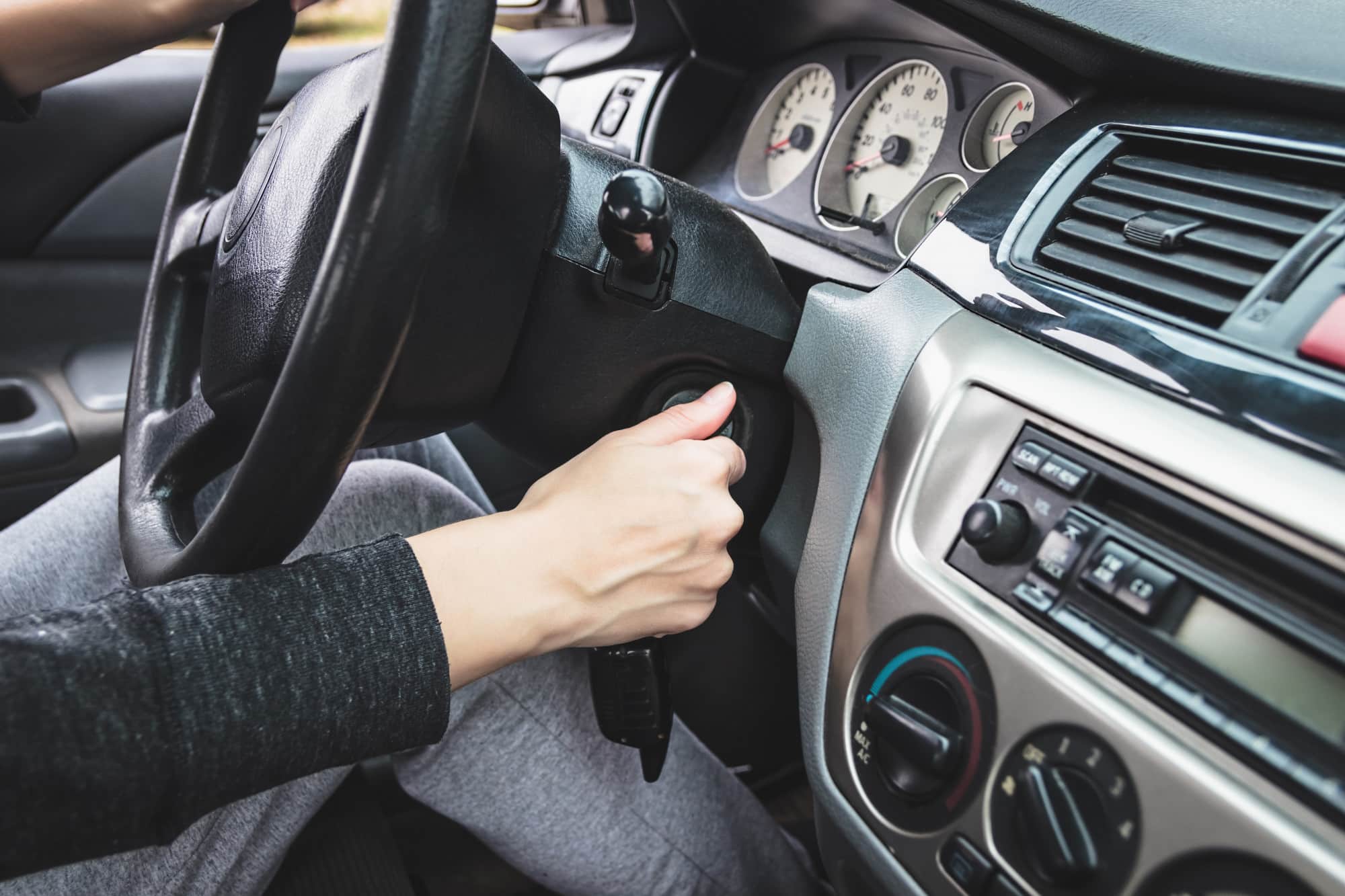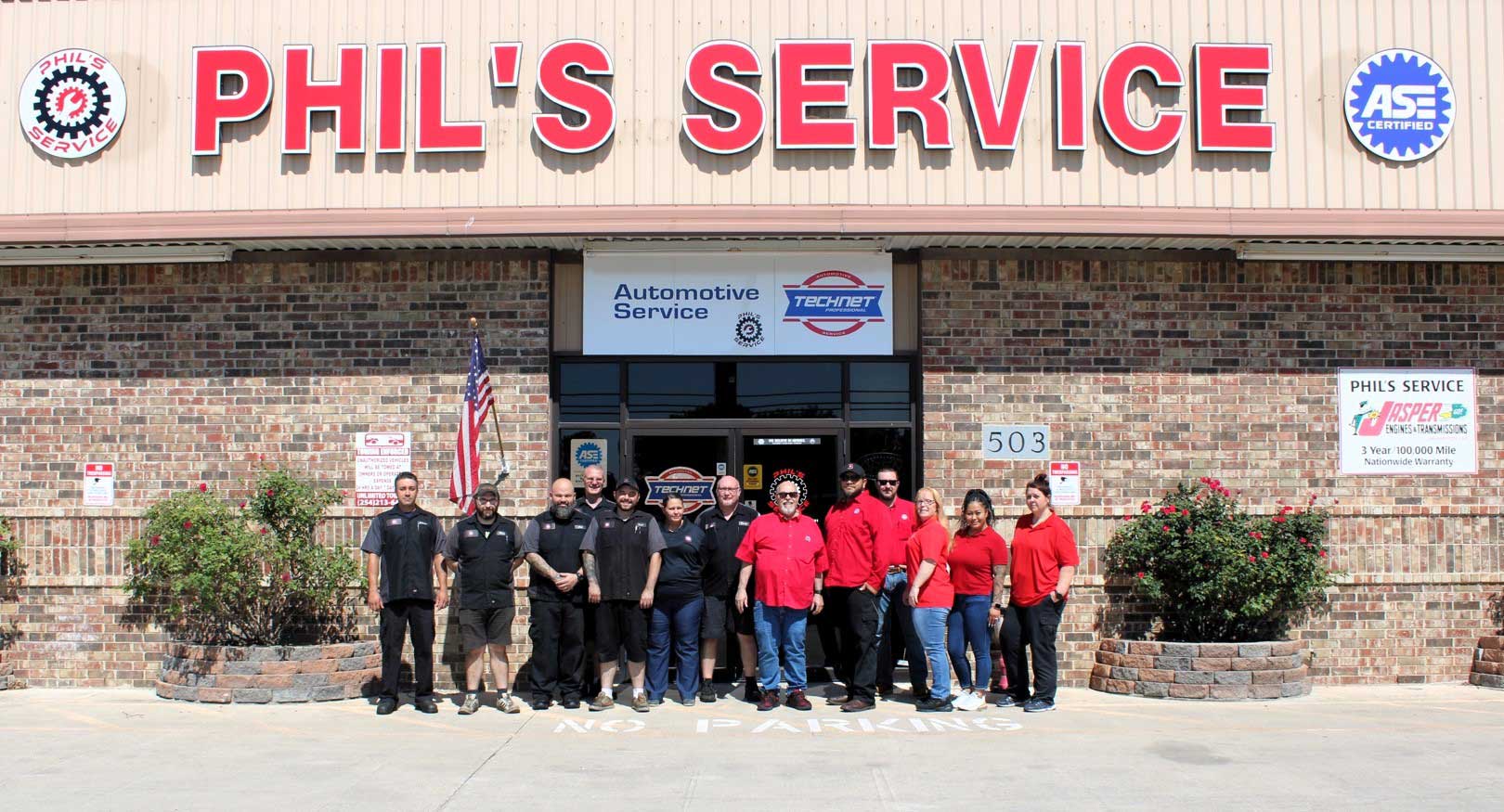Why Does My Engine Shake When Idle?
It's an unnerving feeling.
Your car is idling and you aren't supposed to be moving. Yet, you feel like you're on an airplane, experiencing some pretty heavy turbulence in the middle of a storm. You feel the vibration and activity coming from your engine, but you have no clue where it's coming from or how to stop it.
What's going on?
Before you begin Googling "Why does my engine shake?", there are a few important elements to consider. Today, we're here to set your mind at ease and shed some light on an issue that's more common than you might realize.
Ready to learn more? Let's dive in!
Your Car Shakes While Idle? Why This Matters
Your car should always run as smoothly as possible, whether you're at a stoplight or cruising down the highway. Yet, you might find that once you pull your car to a stop and begin to idle, it's anything but calm.
In most cases, you'll feel this motion first in your steering wheel. Yet, it can quickly affect the rest of your vehicle if left unattended.
If you notice your engine shaking at any time, it's important to bring your car to a mechanic right away for an official diagnosis. While you wait, let's take a look at a few of the issues that could be at play.
1. Poor Idle Speed Control
Most cars and trucks are built to idle at a rate of 600 to 1,000 revolutions per minute (RPM). An RPM within this range is enough to keep the engine from stalling. It also smooths out the power pulses from each cylinder and keeps the A/C and alternator running.
In most vehicles, the engine's idling rotation speed is controlled by a device known as the idle air control (IAC) valve. Over time, carbon deposits can build up within the IAC, weakening its control.
In addition to IACs, some vehicles also include idle-up valves. However, a majority of newer models have replaced these valves, opting for full electronic control of the throttle body instead. If your vehicle does include idle-up valves, their associated vacuum line can easily become pinched, clogged or otherwise defective. In that case, any time you turn the steering wheel while idling, it could overload the engine by not allowing it to increase RPM accordingly.
The result? Not only will your idle speeds be lower than normal, but you'll also feel more vibrations coming from the engine. An experienced mechanic can clean the throttle body, along with your IAC. An expert can also clean, repair or replace your idle-up switch or connected vacuum lines.
2. Issues With Your Engine Mounts
It's a good thing your car engine isn't connected directly to its frame. If that were the case, your vibrations would already be through the roof!
Instead, it's supported by engine mounts. These are blocks of rubber that are mounted on steel brackets. They bolt into place to keep the engine cushioned, reduce vibration and cut down on noise.
While they serve an important purpose, the reality is that these mounts aren't built to last forever. Over time, they can crack, break or simply wear down. When they do, your engine is suddenly not as supported or buffered and its vibrations transmit directly onto the frame. Drivers and passengers become quickly aware of how much noise and movement is really going on!
Some engines also come equipped with active engine mounts designed to dampen engine vibrations. The engine control module (ECM) controls these vacuum-operated mounts. If such amounts are in place, there are myriad types of hardware involved, including:
- Electrical controls
- Vacuum lines
- Hoses
- Vacuum switching valves
If there's an issue with the active mount, or if it isn't actuated correctly, vibrations can transmit onto the vehicle frame, where they're more easily felt. Your mechanic can determine if these mounts are behind the shaking that you're feeling. If so, they can repair or replace the faulty parts, which could range from a defective engine mount to worn-out vacuum hoses.
3. Dirty or Worn-Out Spark Plugs
Often, your car shakes when idle simply because it's time to replace your spark plugs!
When yours are dirty or worn out, they fail to fire in the right way. If this happens, they're unable to ignite the fuel located within each of the piston cylinders on time. As a result, your engine can misfire.
If you've ever heard the expression "Not firing on all four cylinders", now you know where it came from!
Your mechanic can simply clean your spark plugs to take care of the issue. However, due to their low price point, many drivers opt to have theirs replaced, instead. Always ensure your new ones are installed and calibrated correctly before driving away.
4. A Faulty Fuel Intake System
If your engine is shuddering and shaking, your fuel intake system could be to blame. As you put miles of wear on your car, it's easy for this system to show signs of age. In addition to becoming dirty, it could break down altogether if its valves become clogged with debris and buildup.
Valves that are obstructed or are not adjusted properly aren't able to provide a constant, steady supply of clean fuel to the engine. Instead, they deliver an uneven supply, which can cause your engine to shake while you idle. While checking your fuel intake system, your mechanic will also inspect your fuel pump to see if there are any issues present that could affect your idling comfort.
5. Loose, Broken Hoses or Belts
There are many different kinds of vacuum hoses present underneath your vehicle's hood. Any time you experience an issue with your engine's performance, a disconnected or broken hose is likely to blame.
Your car's vacuum hoses are connected to your engine at certain points. Their primary purpose? To clear and eliminate byproduct gases from your engine, including dangerous exhaust and fumes. While they're meant to be secure at all times, it doesn't take much for a hose to become disconnected or leaky.
When this happens, a variety of engine issues could occur. You might notice that yours begins making all kinds of unusual movements and sounds, including:
- Misfiring
- Losing power
- Chugging
- Stalling
- Shutting down
If your engine is shaking violently, a vacuum hose leak could be to blame. Your mechanic can check all of your connections to see if this is the case.
In a similar vein, your timing belt and other important belts (e.g. serpentine belt, v-belts) can also become worn or misadjusted. In addition to engine vibrations, this issue can also cause a squealing noise. Along with your vacuum hoses, your mechanic can also inspect all of your engine belts to make sure they're properly installed and working as they should be.
Why Does My Engine Shake? Now You Know
Still wondering "Why does my engine shake?"
The above five issues are some of the most common reasons why you could be experiencing some unexpected movement as you idle.
However, while the answer might lie within this list, it's always best to bring your car to a reputable mechanic to get an official report and diagnosis.
If you're in the greater Killeen area, we'd love to help you out.
Request an appointment today and let us know what's going on. We'll take a look and help you fix any issues we find, giving you back your peace of mind and getting you back on the road as soon as possible.
Whether it's pulsating, vibrating, or you're wondering "why does my engine shake when idle," explore common causes and solutions.
It's an unnerving feeling.
Your car is idling and you aren't supposed to be moving. Yet, you feel like you're on an airplane, experiencing some pretty heavy turbulence in the middle of a storm. You feel the vibration and activity coming from your engine, but you have no clue where it's coming from or how to stop it.
What's going on?
Before you begin Googling "Why does my engine shake?", there are a few important elements to consider. Today, we're here to set your mind at ease and shed some light on an issue that's more common than you might realize.
Ready to learn more? Let's dive in!
Your Car Shakes While Idle? Why This Matters
Your car should always run as smoothly as possible, whether you're at a stoplight or cruising down the highway. Yet, you might find that once you pull your car to a stop and begin to idle, it's anything but calm.
In most cases, you'll feel this motion first in your steering wheel. Yet, it can quickly affect the rest of your vehicle if left unattended.
If you notice your engine shaking at any time, it's important to bring your car to a mechanic right away for an official diagnosis. While you wait, let's take a look at a few of the issues that could be at play.
1. Poor Idle Speed Control
Most cars and trucks are built to idle at a rate of 600 to 1,000 revolutions per minute (RPM). An RPM within this range is enough to keep the engine from stalling. It also smooths out the power pulses from each cylinder and keeps the A/C and alternator running.
In most vehicles, the engine's idling rotation speed is controlled by a device known as the idle air control (IAC) valve. Over time, carbon deposits can build up within the IAC, weakening its control.
In addition to IACs, some vehicles also include idle-up valves. However, a majority of newer models have replaced these valves, opting for full electronic control of the throttle body instead. If your vehicle does include idle-up valves, their associated vacuum line can easily become pinched, clogged or otherwise defective. In that case, any time you turn the steering wheel while idling, it could overload the engine by not allowing it to increase RPM accordingly.
The result? Not only will your idle speeds be lower than normal, but you'll also feel more vibrations coming from the engine. An experienced mechanic can clean the throttle body, along with your IAC. An expert can also clean, repair or replace your idle-up switch or connected vacuum lines.
2. Issues With Your Engine Mounts
It's a good thing your car engine isn't connected directly to its frame. If that were the case, your vibrations would already be through the roof!
Instead, it's supported by engine mounts. These are blocks of rubber that are mounted on steel brackets. They bolt into place to keep the engine cushioned, reduce vibration and cut down on noise.
While they serve an important purpose, the reality is that these mounts aren't built to last forever. Over time, they can crack, break or simply wear down. When they do, your engine is suddenly not as supported or buffered and its vibrations transmit directly onto the frame. Drivers and passengers become quickly aware of how much noise and movement is really going on!
Some engines also come equipped with active engine mounts designed to dampen engine vibrations. The engine control module (ECM) controls these vacuum-operated mounts. If such amounts are in place, there are myriad types of hardware involved, including:
- Electrical controls
- Vacuum lines
- Hoses
- Vacuum switching valves
If there's an issue with the active mount, or if it isn't actuated correctly, vibrations can transmit onto the vehicle frame, where they're more easily felt. Your mechanic can determine if these mounts are behind the shaking that you're feeling. If so, they can repair or replace the faulty parts, which could range from a defective engine mount to worn-out vacuum hoses.
3. Dirty or Worn-Out Spark Plugs
Often, your car shakes when idle simply because it's time to replace your spark plugs!
When yours are dirty or worn out, they fail to fire in the right way. If this happens, they're unable to ignite the fuel located within each of the piston cylinders on time. As a result, your engine can misfire.
If you've ever heard the expression "Not firing on all four cylinders", now you know where it came from!
Your mechanic can simply clean your spark plugs to take care of the issue. However, due to their low price point, many drivers opt to have theirs replaced, instead. Always ensure your new ones are installed and calibrated correctly before driving away.
4. A Faulty Fuel Intake System
If your engine is shuddering and shaking, your fuel intake system could be to blame. As you put miles of wear on your car, it's easy for this system to show signs of age. In addition to becoming dirty, it could break down altogether if its valves become clogged with debris and buildup.
Valves that are obstructed or are not adjusted properly aren't able to provide a constant, steady supply of clean fuel to the engine. Instead, they deliver an uneven supply, which can cause your engine to shake while you idle. While checking your fuel intake system, your mechanic will also inspect your fuel pump to see if there are any issues present that could affect your idling comfort.
5. Loose, Broken Hoses or Belts
There are many different kinds of vacuum hoses present underneath your vehicle's hood. Any time you experience an issue with your engine's performance, a disconnected or broken hose is likely to blame.
Your car's vacuum hoses are connected to your engine at certain points. Their primary purpose? To clear and eliminate byproduct gases from your engine, including dangerous exhaust and fumes. While they're meant to be secure at all times, it doesn't take much for a hose to become disconnected or leaky.
When this happens, a variety of engine issues could occur. You might notice that yours begins making all kinds of unusual movements and sounds, including:
- Misfiring
- Losing power
- Chugging
- Stalling
- Shutting down
If your engine is shaking violently, a vacuum hose leak could be to blame. Your mechanic can check all of your connections to see if this is the case.
In a similar vein, your timing belt and other important belts (e.g. serpentine belt, v-belts) can also become worn or misadjusted. In addition to engine vibrations, this issue can also cause a squealing noise. Along with your vacuum hoses, your mechanic can also inspect all of your engine belts to make sure they're properly installed and working as they should be.
Why Does My Engine Shake? Now You Know
Still wondering "Why does my engine shake?"
The above five issues are some of the most common reasons why you could be experiencing some unexpected movement as you idle.
However, while the answer might lie within this list, it's always best to bring your car to a reputable mechanic to get an official report and diagnosis.
If you're in the greater Killeen area, we'd love to help you out.
Request an appointment today and let us know what's going on. We'll take a look and help you fix any issues we find, giving you back your peace of mind and getting you back on the road as soon as possible.


